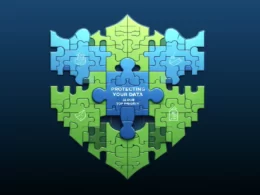The Cyber Threat Actors Use Social Engineering Tactics For Cyber Kidnapping.
Imagine this: your child is playing a game online when they receive a message from someone they think is their friend. The person starts talking to them regularly, building trust and getting to know them. But then, one day, everything changes. The person sends a message saying that your child has been kidnapped and they need money to bring them back safely.
This is cyber kidnapping, a terrifying scam that uses technology to trick people into believing their loved ones are in danger. It’s a growing problem, especially for kids who spend a lot of time online.
Also See: The Social Engineering - A Tactics to Hack Human Mind
How does cyber kidnapping work?
Cyber kidnappers are like con artists who use the internet as their playground. They often target kids and teenagers because they’re more likely to trust people online and may not be as aware of the dangers.
Cyber kidnappers use a combination of deception and intimidation to trick victims into believing they are in danger.
- The attacker contacts the victim online, often through social media or gaming platforms. They may pose as a friend, authority figure, or even a potential romantic interest.
- The attacker builds trust with the victim over time, gaining their personal information and confidence.
- Once the attacker feels they have control, they fabricate a scenario where the victim is supposedly kidnapped or in danger. This could involve fake photos, videos, or even staged phone calls.
- The attacker then contacts the victim’s family or friends, claiming they need to pay a ransom to secure the victim’s release.
- The entire scheme relies on convincing the victim’s loved ones that the threat is real.
Impact of Cyber Kidnapping:
- Emotional distress: Cyber kidnapping can cause immense emotional trauma for the victim and their loved ones. The fear, uncertainty, and helplessness can have lasting psychological effects.
- Financial losses: The ransom demands can be significant, leaving families financially vulnerable.
- Reputation damage: In some cases, the victim’s personal information or embarrassing photos may be leaked online, further damaging their reputation and privacy.
Recent Case of Cyber Kidnapping:
In Forbes report, Zhuang was reported missing on Dec. 28, after his family in China contacted his school in the U.S. to report they’d received images that suggested he was forcibly kidnapped, even as Zhuang’s host family in the U.S. told police they had seen Zhuang earlier that day and were unaware of a forcible kidnapping, according to Riverdale, Utah Police Chief Casey Warren.
His family paid approximately $80,000 in ransom money to Chinese bank accounts after receiving “continuous threats from the kidnappers” about Zhuang’s safety, police said.
Meanwhile, the scammers were threatening Zhuang for possibly a month, telling him if he didn’t comply with their demands, his family would be harmed in China, and ordering him to isolate himself in the woods and send photos to his parents, Warren said in a press conference.
In these “cyber kidnapping” cases, the scammers tell victims to isolate themselves. They may convince them under duress to make it appear they are being held captive—in some cases, even contacting the victim via webcam and sending voice recordings to the families.
How to Protect From Cyber Kidnapping:
- Be cautious online: Be wary of strangers you meet online, especially those who quickly express strong emotions or ask for personal information.
- Protect your privacy: Don’t share personal details or photos publicly online. Be careful about what information you share on social media.
- Talk to your family and friends: Make sure your loved ones are aware of cyber kidnapping and how to recognize the signs.
- Set clear boundaries: Don’t engage in online conversations that make you feel uncomfortable or pressured.
- Never send money: If you or someone you know is targeted by a cyber kidnapping scam, do not pay the ransom. Contact the authorities immediately.
Additional Security Tips:
- Use strong passwords and enable multi-factor authentication.
- Install and update security software regularly.
- Be cautious about clicking on links or downloading attachments from unknown sources.
- Teach your children about online safety.
Remember: It's important to stay vigilant and proactive in protecting yourself and your loved ones from cyber kidnapping. By being aware of the risks and taking necessary precautions, you can help prevent this from happening to you.
Additional Resources:
The National Center for Missing and Exploited Children: https://www.missingkids.org/
The FBI: https://www.fbi.gov/investigate/cyber
The National Crime Prevention Council: https://www.ncpc.org/











